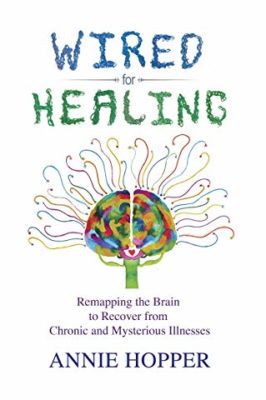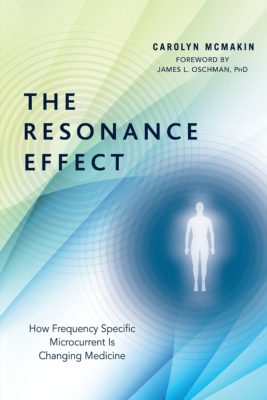Three Health Books That Changed My Perspective for 2020
- Share
- Tweet
- Pin
- Share
by Amanda Bourbonais
I was initially drawn to the science of health last year to change how I lived with ulcerative colitis, but I quickly developed a genuine interest in the best ways to repair our bodies and minds. Throughout that initial learning process, I read a lot of health-related books and am sharing those that I found most helpful and uplifting during my personal healing journey. Though they may be relatively unknown beyond their target audience, they can apply widely to other readers. I hope they provide you with some guidance to improve your own health.

Toxic: Heal Your Body from Mold Toxicity, Lyme Disease, Multiple Chemical Sensitivities, and Chronic Environmental Illness by Neil Nathan, M.D.
People with Lyme disease and other environmental illnesses are often lost and overwhelmed, both in dealing with their illness and trying to find a practitioner who’s qualified to help. Mold illness and chemical sensitivities can be especially devastating because they often originate in one’s home in a moldy basement or in oxidized chemicals from new building materials that quickly become toxic to our already-stressed-out systems.
Nathan, one of the leading doctors in the growing field of environmental illness, walks the reader through each illness and how he diagnoses and treats patients with even the most complicated symptoms. Though he doesn’t sugarcoat the long process, he does remain hopeful that severe cases of environmental illness can be healed, and he includes stories of patients whom he has helped to recover both their health and a normal life.
Nathan also addresses the depression and anxiety that patients with environmental illness endure, but he offers a realistic, empowering path to health.

Wired for Healing: Remapping the Brain to Recover from Chronic and Mysterious Illnesses by Annie Hopper
This book was nothing short of life-changing for me when I read it. Hopper tells the story of her battle with multiple chemical sensitivities and how, using brain-remapping techniques, she was able to tamp down the overactive threat mechanisms in her brain to reverse her symptoms. Once she’d healed herself, she developed the Dynamic Neural Retraining System, which has since helped thousands of people to recover from chemical sensitivities, fibromyalgia, PTSD and more.
This book introduced “neuroplasticity”: the idea that you can help your body heal by changing your thought patterns and embedding new ones in your brain. Hopper’s system deprograms your brain’s automatic fear response, for example, and reprograms its tolerance for certain triggers. That’s a very simplified explanation, but she discusses the scientific details in an accessible way.

The Resonance Effect: How Frequency Specific Microcurrent Is Changing Medicine by Carolyn McMakin
Now, here’s where things get really crazy – but no less awe-inspiring. McMakin’s rediscovery of Frequency Specific Microcurrent (FSM) has helped thousands of patients to recover from seemingly incurable chronic pain and other chronic diseases.
It works by using specific frequencies – hence the name – to “resonate” with different organs, bodily systems and even emotions. When the correct frequency is introduced to the body using a two-channel system, the body can stabilize itself and reestablish a pattern to maintain health.
McMakin tells stories of patients’ recoveries with FSM that are enormously inspiring, especially if you’re reading her book with treating your own illness in mind. It shows how inadequate our modern system of matching drugs to ailments is for so many conditions, and it highlights how much we still don’t know about the body. Most importantly, it gives hope to those who are living every day with an illness they thought would be incurable.
If you or a loved one lives with debilitating chronic illness, I hope one of these books will prove helpful, and I encourage you to do your own research well beyond these recommendations. Once you start looking at alternative and novel treatments, it’s hard to accept that you have only a handful of options. In reality, you’re limited only by what you know is possible, so expand your understanding of what is possible!
